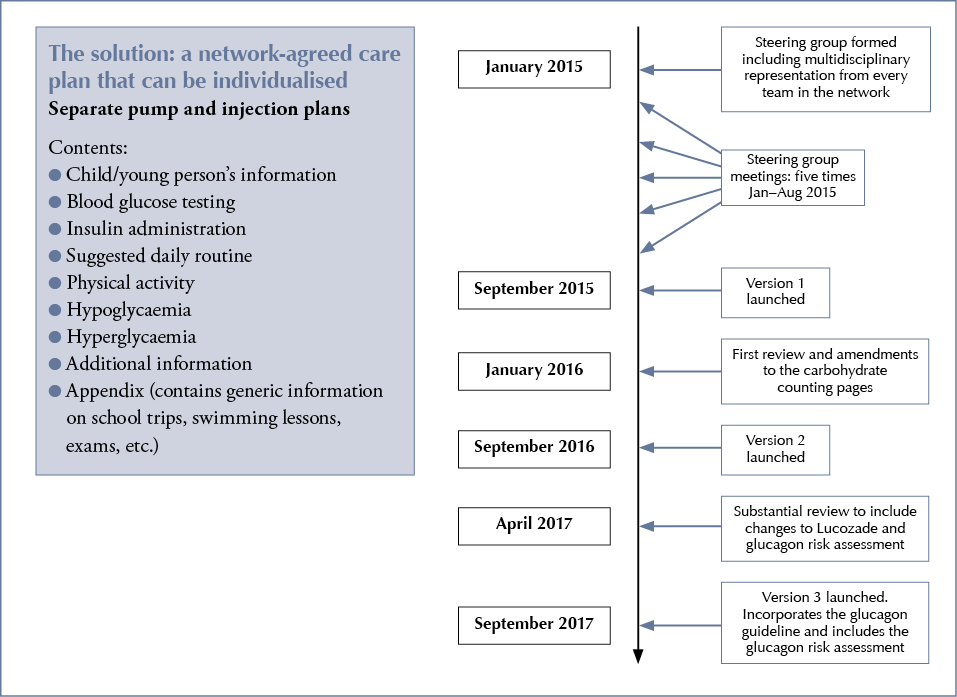With children spending more than 700 hours a year in the care of their teachers, school care plans are arguably as important for a child with type 1 diabetes as the training his or her parents receive at diagnosis.
In 2014, paediatric diabetes specialist nurses at two neighbouring Trusts in the north-east of England stumbled across a problem at one of the schools in their area. Two children with type 1 diabetes who were under the care of different hospital teams attended the school. As a result, the school had two different school care plans for the children. Understandably, the staff members at the school were concerned.
It was established that the content of the two school care plans was the same, but the information had been explained in very different ways. This was causing confusion and misinterpretation of the details and, ultimately, could have led to a dangerous situation. On further investigation, similar circumstances became apparent in other areas within the network. Therefore, after reviewing care plans already in use around the network and the rest of the country, a steering group was established in January 2015 to produce a network-agreed school care plan. The resulting plans would be individualised for each child but be identical in format and content.

As the timeline shows, the first care plans were used within schools from September 2015 and were welcomed by healthcare professionals and school staff alike. The care plans have since undergone three reviews, including a substantial review in April 2017. The resulting changes from this review were introduced in schools in September 2017.
During the latest review, the group decided to include the recently developed glucagon guideline for the treatment of severe hypoglycaemic episodes. The steering group dealt with this historically contentious issue logically and with sensitivity. The project followed publication of results from a survey completed by families of children and young people with diabetes, which concluded that most schools did not have or were not trained in the use of a GlucaGen Hypokit.
To incorporate the glucagon guideline into the school care plan, the steering group established that a risk assessment would be included in the appendix of the school care plan. This would allow healthcare professionals to follow a simple checklist and, on completion, if the child or young person were deemed to be at high risk, the glucagon guideline would be applied within his or her school.
The healthcare teams within the Children and Young People’s North East and North Cumbria Diabetes Network started rolling out version 3 of the school care plans in September 2017. This version includes the glucagon risk assessment. The teams are keenly anticipating feedback on this.
Access
The school care plans and the glucagon guideline are available to view on the Children and Young People’s National Diabetes Network website at: www.cypdiabetesnetwork.nhs.uk/regional-pages/north-east-and-north-cumbria/network-agreed-documents-guidelines/


